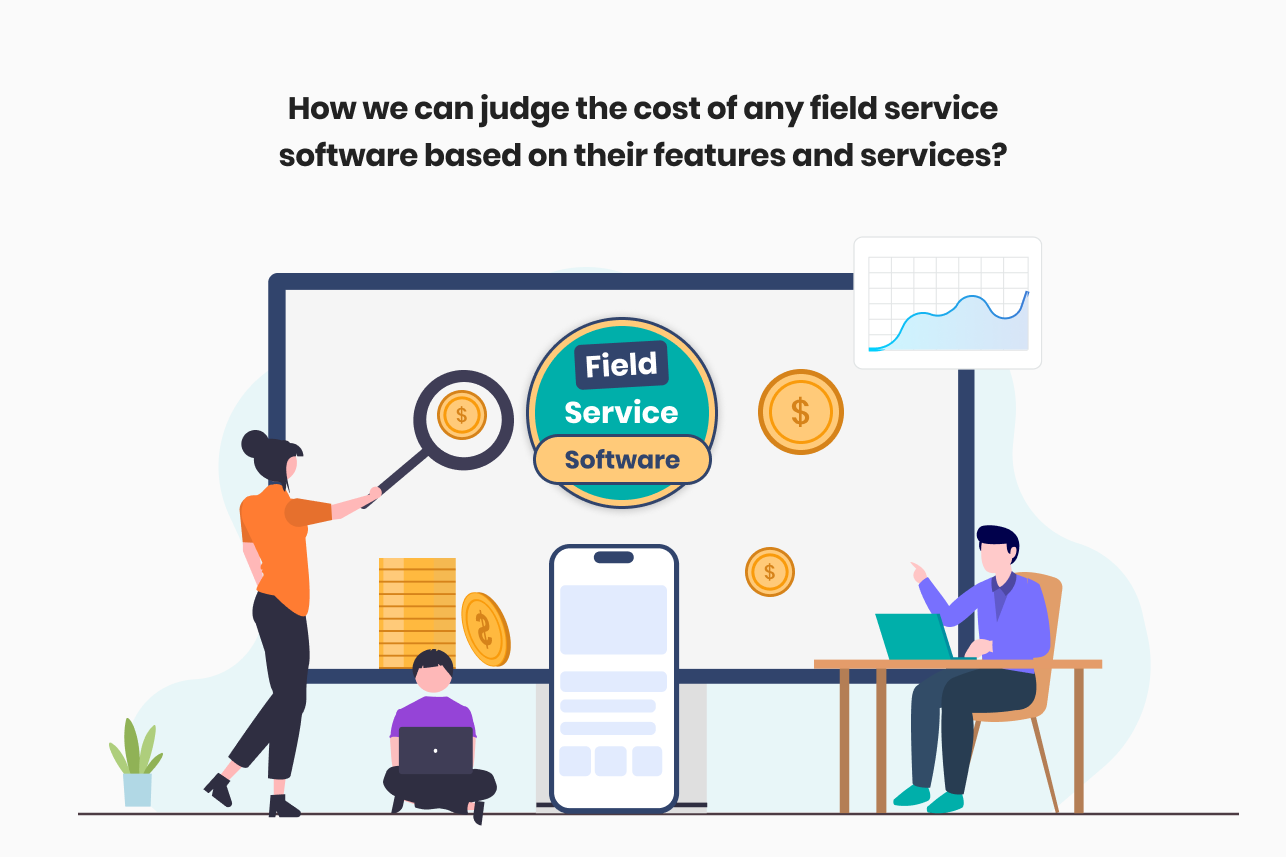When evaluating the cost of field service software based on its features and services, it’s essential to consider several key factors to determine the value it provides to your business. Here’s how you can judge the cost-effectiveness of field service software:
Feature Set: Evaluate the features offered by the field service software and determine whether they align with your business needs and goals. Consider essential features such as scheduling and dispatching, mobile access, work order management, inventory tracking, billing and invoicing, reporting and analytics, and integrations with other business systems. Compare the features provided by different software solutions and assess their relevance and importance to your operations.
Scalability: Consider whether the field service software can scale with your business as it grows. Assess whether the software can accommodate changes in the number of users, technicians, and service locations, as well as additional features or customization options that may be needed in the future. Scalability is crucial for ensuring that the software remains cost-effective in the long term and can support your evolving business needs.
Ease of Use: Evaluate the usability and user experience of the field service software. A user-friendly interface and intuitive design can help improve productivity and reduce training time for your team, ultimately leading to cost savings. Consider whether the software offers features such as customizable dashboards, drag-and-drop scheduling, and mobile accessibility that can enhance usability and efficiency.
Integration Capabilities: Assess the integration capabilities of the field service software with other business systems and tools that you use, such as CRM software, accounting software, or inventory management systems. Seamless integration can streamline workflows, eliminate duplicate data entry, and improve overall efficiency, resulting in cost savings and improved productivity.
Support and Maintenance: Consider the level of support and maintenance provided by the field service software vendor. Evaluate factors such as customer support availability, response times, and service-level agreements (SLAs). Reliable support and regular software updates can help minimize downtime, resolve issues quickly, and ensure that the software continues to meet your business needs effectively, ultimately contributing to cost-effectiveness.
Total Cost of Ownership (TCO): Calculate the total cost of ownership of the field service software over the long term, taking into account not just the upfront subscription or licensing fees but also additional costs such as implementation, training, support, and any potential customization or integration expenses. Assess the ROI that the software can provide in terms of improved efficiency, productivity, customer satisfaction, and revenue generation to determine its cost-effectiveness for your business.
By carefully evaluating these factors and weighing the cost against the value provided by the field service software, you can make an informed decision that meets your budget constraints while effectively supporting your business operations and objectives. Additionally, consider requesting demos, trials, or references from the software vendor to gain firsthand experience and insights into the software’s features, usability, and overall suitability for your business.
